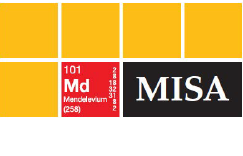Science Curriculum Undergoes Changes

by Kimberly Greulich ‘18
The MCPS chemistry curriculum has been rewritten for the 2017-2018 school year and onward. The changes to the curriculum follow the removal of the traditional Biology HSA for a new test––the Maryland Integrated Science Assessment (MISA), which tests students on biology, chemistry, physics, and earth science. Biology and physics already endured their restructures to support the new test, and now it’s chemistry’s time.
Teachers have many opinions on the changes made. Chemistry teacher Mary Baker said she does not feel the curriculum had enough time to be written properly. “They piloted just one quarter last year, and then they wrote all the other three. And they were writing them up to the last second, practically. So, we just got the fourth quarter stuff a few weeks [before the fourth quarter],” said Baker.
The timing issue bled into the curriculum as a whole. Because the curriculum had to fit in a new field of study, cuts had to be made to the existing material. “The new chemistry is a hybrid of some chemistry––some very basic chemistry––and earth science . . . The curriculum has been very what we call ‘watered down.’ It’s very, very basic,” said chemistry teacher Britani Greco. “But the pro is that everyone can now do this chemistry; it’s very accessible to everyone. Con is, people are going to take this chemistry and think they can do well in college, and they’re not. They’re very different.”
While some teachers have issues with the curriculum, it seems they also have strong feelings toward the MISA. “From what I’ve seen of the test, I don’t think it’s a very fair test at all,” said Baker. “I don’t think we’re really going to be testing whether people learned basics in any of the four fields.”
Biology and environmental science teacher Laura Dinerman, who was an active participant in the rewrite of the chemistry curriculum, feels that it is not a lost cause. “There’s always disruption when there’s change. Ultimately, can this be successful? Sure. It’s going to take a lot of work,” said Dinerman.
One of the changes to the curriculum is the addition of climate science, and with the Trump administration’s uncertain view of whether global warming is real, adding it to a mandatory class could cause controversy with parents or students. “We’re not teaching anything beyond going through the data, and it is kind of hard to argue with data. [Students] are encouraged to talk about, ‘Could it mean something else?’ or ‘Could it be something else?’” said Baker.
The inclusion of topics such as climate science raises the question of whether they belong in the chemistry course. “It needs to be someplace, for sure,” said Dinerman. “I think it can be a good fit, but I think that it does take effort to make sure that the components of chemistry that have historically been taught get incorporated into the new topics––that they don’t abandon basic chemistry as they seek to improve student knowledge about changes happening in the world of climate.”